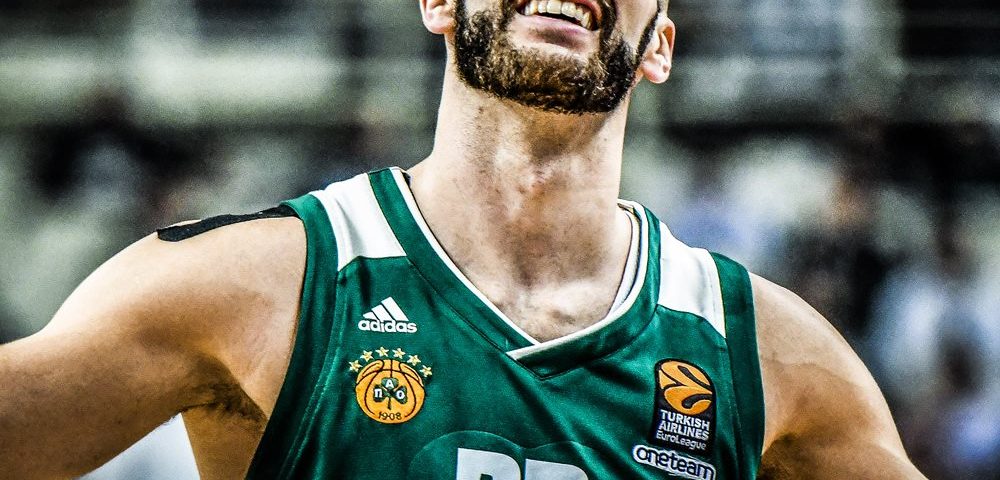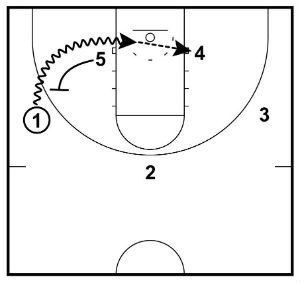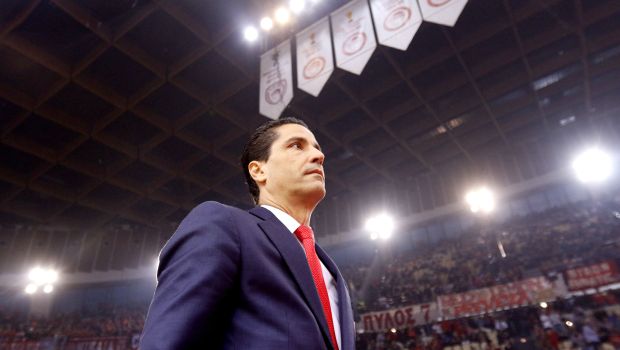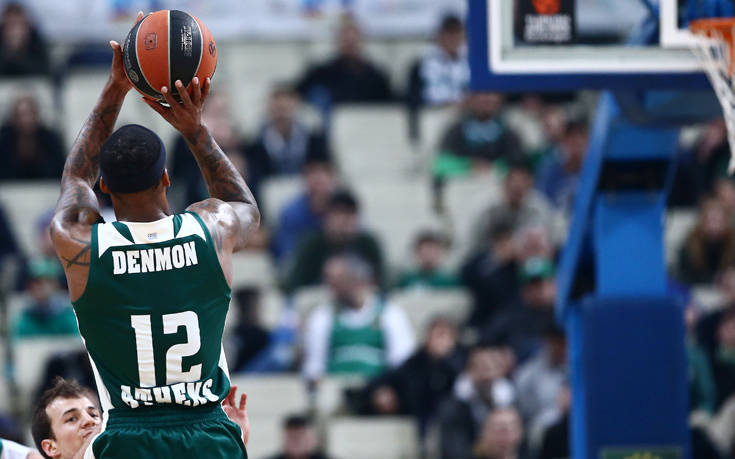Havoc..

By Jim Katsionis on 29 January 2018
Xavi Pascual’s Man to Man Trapping that reminded us of Shaka Smart’s “Havoc” and the “return” of Nick Calathes gave Panathinaikos the big win against a great Zalgiris team. It’s decision-making time for Olympiacos, who fell apart in the final stretch of the Belgrade game. Acceptance or “slow death”…? Hoopfellas analysis on the performance of the two “eternals” in a very important point in the season…

Instead of an introduction…
Dark shadow…

Olympiacos fell apart at Belgrade, conceding 89 points to Crverna Zvezda (32 in the final quarter), in the same manner that has been haunting the team in the last 40 days. The famous Reds resistance is nowhere to be found, as Olympiacos are gradually losing ground in the standings, and their inability to react has hurt their team spirit, with the team facing a decisive test. Olympiacos are playing bad basketball and are finding it very difficult to pull themselves out of this situation, as the basic principles, on which their game is built (to which they turn when their defensive mechanism are put to the test) are just not working.
Let’s see some things from the Belgrade game…
-Once more, the rule Hoopfellas set, when evaluating the Reds performance in the recent crisis, is confirmed. Olympiacos cannot win a game where they are not the most physical team on the court and the one that runs better. The fact that this rule was confirmed against this squad (Crvena Zvedza, a team whose physical/athletic profile is not really scary) certainly poses many questions about the Reds stamina level today.

The physical/athletic profile is the beginning of everything for the type of basketball Olympiacos are trying to play, starting from the way their philosophy was built on the basis of a hard-working and well-trained team. It is easy to understand why the Reds are losing individual battles on defense at the moment. Giannis Sfairopoulos has turned to principles that used to be the “safe road” for Olympiacos, but he is very late in reading that the same principles are not working any more within this physical/athletic context. It’s not a coincidence that several teams in this year’s Euroleague worked hard in the Off Season aiming at improving these abilities in their roster. CSKA (Clyburn, Hunter), Zalgiris, Brose (even though I believe that last year’s Brose team player better, although the quality of their players was by far better)… The Reds tried to add perimeter firepower, hoping that this will cover up their weakness in presenting something more modern in terms of the structure of their offense. In this poor stint, the bodies of several core players are not at a good state for different reasons. However, the way the team wants to play cannot rely on a different basis. It completely changes the “constants” in relation to what is a miss match in the battlefield for Olympiacos. The way players such as Ennis and Lessort dominated the court on Friday night says a lot…
One more time: In modern basketball, offense is played in close outs…

– The Serbian bench dominated. No doubt about that. Coach Alimpijevic was prepared and he exploited the Reds weaknesses, especially Spanoulis’ defense, as few teams have done, in conjunction with the roster every coach has in his hands. The home team showed that they wanted to attack 2 on 2 from the wing or the main lane, taking advantage of the Reds inability to control the ball and direct the ballhandler away from his good spots.
We have said before that today’s offense is actually played on close outs. Crvena Zvedza constantly attacked on the duo of Spanoulis-Roberts in these actions, getting the ball from the paint to the side where Olympiacos’ guards defended. Also, in middle PnR the side of the dribbling is selected based on Spanoulis’ position (the Strong side was automatically the side where the Reds captain defended, the Weak side where Papanikolaou was) aiming at exploiting his floating towards the middle lane. On the contrary, this is a part where the Reds offense is not good. They don’t have the guards that can break through the defense, read the defense in close out actions (which would boost the productive ability of their very good big men in finishing in the paint) and connect with the weak side with the relevant playmaking. It’s now obvious that defenses are not afraid of Olympiacos’ guards (except Spanoulis, there is no other player with advanced ball handling, playmaking or slashing that can attack on them) and that they adapt with the help of the three point line against the worst scoring team in the league. Crvena Zvedza, for example, defended very aggressively against the Reds PnR (Hard Hedge), aiming at controlling the base line cuts of the Reds forwards when activating defensive rotations, thus allowing outside shots. Keep in mind that the Reds had good numbers in these actions. However, they could only use this (i.e. spot shots), without being able to break through the defense and create paths for good opportunities for their big men, which, in turn, is the most efficient way you can attack such a defensive approach in so many levels.
As the offensive playbook of the Greek team with the second unit on the court included lots of dribbling by Strelnieks (why didn’t we see more Weave actions?), which is not the Latvian player’s best asset, I can say that I liked Alimpijevic’s offensive playbook, which was adjusted on their opponents (a variety of choices, regardless of what worked and what didn’t). The young and talented Serbian coach has ideas and the ability to attack the same weakness of a defense in many different ways. For example, he run Step Up Pick & Rolls (an action whose purpose is to put the ballhandler across the base line in side picks) aiming at attacking on weak side-close out either with off the ball plays (cut to the heart of the paint) on the weak link of their opponents’ defense.

I also liked the way the home team have included the versatile face-up/post-up game of Davidovac and Bjelica in their offensive playbook. The 23-year-old forward was one of the main creators in his team’s offense, he played as the screener in PnR offense, and he also was the player that got the ball to the wing (against an aggressive 3/4 defense) in the change from Diamond to 1-3-1 or 2-3, which usually ended up in Side Post for Bjelica-Jankovic (both can put the ball on the floor and dribble to the basket, at the same time keeping their defender on their back); the home team relied on that very much when they needed to score. We also saw Tripple Staggered offense (they use it a lot when they want to get Dobric on the main lane) and Single Drag (for Rochestie for a midrange or floater) or Double Drag (for Ennis, for a drive or transition offense). Coach Alimpijevic, who is very smart in using Lazic as a screener (Spain PnR) in the middle lane in order to cover up his offensive the veteran guard’s weaknesses, managed to get a great game from Dylan Ennis, who changed the balance on the court with his performance, in particular his efficiency in outside shooting.
Desperate situations, desperate measures…

At the time Olympiacos is inside a ditch. Inside a hole… They are finding it difficult to find a steady spot to step on and drag themselves out of it. No one knows if the dirt will give way, and make the Reds tumble down even more. The Reds need a shock. An intervention that can release the toxins that have lately piled up in their body. Their performance is not the real reflection of their team’s ability. As was their early performance, when their team was on a roll. There is a middle ground, and this is where truth lies. We have talked about the problems of this roster in this type of game. Last week, we talked about “brave decisions”. At this moment, coach Sfairopoulos must make some of these brave decisions, in order to avoid being himself the change the team needs so desperately. After all, it was he, himself that put himself in this position, when he made the choices in the Offseason. It is unthinkable that in this specific offense the coach runs, the team doesn’t have a second guard with great playmaking. There are two options: Either the coach is a bad recruiter, or he didn’t want to put at risk his relationship with the team’s leader and his main playmaker, Vassilis Spanoulis, who would no longer be the only player that would bring the Reds offense into life. Olympiacos have to immediately change Roberts with a guard with great playmaking (and ideas that would bring life back to their offense), as well as (following our golden rule-“footwork and playmaking”) good footwork (slashing-good defense). They simply HAVE TO. However, we also have to take into account the cost of such a move. Immediately after that, they have to see what they can do with Thompson, assessing the things he can do, in conjunction with Tillie’s return. Just a reminder of what we said in the first EL Power Rankings for the season, and how familiar is sounds today..
A few years ago (the Duda era, 2011-12) Olympiacos needed two moves to change things around. First of all, they needed to accept their mistakes in the Offseason. This is the crossroads they find themselves today. Acceptance or slow death…
The coaches’ bras de fer at OAKA

Panathinaikos were the last ones standing in a great game against Zalgiris at OAKA with suspense and many ups and downs in the score. Ups and downs in a coaching bras de fer between Sarunas Jasikevicius and Xavi Pascual, with the performance of the coaches reflecting on the performance of the teams on the court. Nick Calathes’ winning basket solved the “Gordian Knot” in a game that we’ll remember for the years to come…
Lets delve into what we saw…
-Panathinaikos were the boss of the game for as long as they managed to play in the open court and push the ball quickly to offense, which created the chances for transition execution. The Greek team relied on aggressive defending on the PnR offense of the Lithuanian team and Nick Calathes’ ability to aggressively dribble in transition; this is how they got to the driver’s seat. Lojeski’s absence (a key player in the multi screen off the ball offense the Greens usually use on the beginning of games this year) led Xavi Pascual to this approach. Marcus Denmon (he started off with 4/5 three pointers and 14 points in the first period) had a great start and was the player that “lifted” the home team in terms of scoring. As we’ve said before, under coach Pascual and within this offensive context, especially against these types of defense, the American Off guard must increase the number of his spot shots (see Lojeski). This is an element that shows the correct operation of such offenses.

The home team chose Hard Hedge and trapping against the Pick & Rolls Zalgiris run with Pangos (using Thanssis Antetokounmpo’s ability to play in the middle of the key on the back line) and direct the ball to Toupane, which led to the many shots the Frenchman had in the beginning. Toupane had a great match against Valencia, where he scored 18 points with 8/9 two pointers, after his winning bucket against Juventus and the praise he got by his coach about his abilities and his work ethic…

-The most encouraging thing about the Greens behaviour (I think that Xavi Pascual will rely on that very soon) is the boost the role-players gave to Panathinaikos’ offense. These are players that are not in the “hard core of 6” (Calathes, Pappas, Rivers, Lojeski, Singleton, Gist). Except for Denmon (he was in the starting 5, he didn’t get much time on the court after his hot first period), who “pays” the very strong bond the Greens offense has in the final minutes of close games with the (necessary) 1 on 1 game of Nikos Pappas together with his own lack of ability to run coach Pascual’s playbook as the main playmaker (he is not that kind of player), Ian Vougioukas and Lucas Lekavicius were there for the Greens and helped the team a lot. Vougioukas had his best game of the season with Panathinaikos (11 points, 4/5 two pointers, 3/4 free throws, 8 rebounds in 17:28). Coach Pascual, who had been trying to create the extra player in his frontcourt, using the cards of Gabriel, Auguste and lately Mitoglou, knows that the 32-year-old Center is the only Post up big man he has. The team’s aggressive style on offense is not a good fit for his game (we can see that in his playing minutes), but his ability to score from down low is there (he has 64.9% in two pointers and 78.8% in free throws) and this has played its role in what the team is looking for in the market. It should also be noted that coach Jasikevicius chose to send help to Vougioukas from the beginning (even when the Greens strong side was full of “killers”), taking into account his performance on the Barcelona game at OAKA.

Lekavicius was also quite “aggressive”, which might be the key for his presence in the Greens rotation. His package leads him there, as it’s the only way to play his game and make his presence felt by opposing defenses. The Lithuanian guard scored some important baskets (his coach was expecting to see some of those shots go in last week against Fener) and made his coach leave him on the court next to Calathes at a key-point in the match. With Vougioukas at “5” and Denmon-Rivers on the wings, the Greens activated Weakside Staggered actions and Diamond offense, which usually ended up in Low Post actions for the big man and managed to keep their productive flow high. The trio of Denmon-Vougioukas-Lekavicius scored 39 points (11/20 FGs, 6/9 three pointers, 9/10 free throws) for Panathinaikos’ offense.
-Zalgiris had one more great game, which illustrates the way they operate this year, as well as the character the team is trying to build. It’s not easy to get in the driver’s seat at OAKA and come back from 20 points behind. Saras got his opponent on the ropes, which shows his IQ and his reflexes. When the Lithuanian team was behind, they “adapted”. They went small (their “war tank” this season, as we pointed out in the match against Olympiacos at Kaunas), they improved on their transition defense and took the match to the half court, changing the timing of their offense and came back to the game little by little. This Zalgiris team is the fastest team in the Euroleague in terms of deployment and they rely on the fact that they don’t rush things. They follow this process, i.e. the “domino effect” (one action following the other), like, for example, Xavi Pascual’s Panathinaikos do in the biggest part of their offensive playbook, but they work simultaneously two or more actions together with the one going on, which helps them unlock even the best of defenses. We’ll talk about what the Lithuanian team plays this year more and, believe me, you ll get to understand the magnitude of the interest. In my opinion, it may be a source of inspiration for coaches in the other side of the Atlantic.
Saras knows his team very well, and he gets help from the versatile roster he has put together. Lineups such as the ones with Toupane-Ulanovas-White in the middle positions allowed Zalgiris to “run” together with the quickest (American) lineups of the “Shamrock”, and this game convinced us even more that the Lithuanian offense is very “wise” and able to be deadly against a total-switch defense. The duo of Kavaliauskas-White produced against every miss match situation in the Low post, with the lighting quick American forward upping the Lithuanians’ efficiency in close out offense. Regarding the veteran Center (21 points, 9/12 two pointers) I think that the Greek defense should have adjusted in a different way (they finally did, but it was rather late) and reconsider their defense without giving help in the low post against a player that was hot and managed to score against the best 1 on 1 defenders in the paint. However, in the last possession…

I have to say the the sense I got was that Panathinaikos can only score from behind the arc. I think that coach Jasikevicius “felt” the same thing immediately after Pangos’ impressive basket, and this is why his instructions were to defend without giving help. In retrospect he was wrong. I was wrong too. This was a great moment for Calathes. It’s very important to have the ability to return and have the last say on a night you had missed quite a few shots (although, as always, he was there in doing everything else).
Havoc..

When Panathinaikos were with their back against the wall (-7) in overtime, Xavi Pascual used up his last “bullet”, activating a man to man trapping (Singleton on the trap from the weak side) which reminded me of the great “Havoc” of the Texas Longhorns and coach Shaka Smart (of course in a different version…) in terms of his decisive influence on the game. A defense that was connected to Rick Pitino (in his Kentucky years) and then his assistant coach, Billy Donovan. The two turnovers this defense produced, allowed Panathinaikos the chance to come back in the game and change the atmosphere in the battlefield. They also helped KC Rivers remember his label of a great closer and score two very important baskets at a time when the ball was hot as hell. With Rivers “hot” and in attack mode, Panathinaikos is a different team and they can look to the top. Rivers and Singleton’s ability to function as a Strech player will be the “keys” from now on. So, talking about the American Wing from North Carolina and the coach Pascual’s defensive idea, I have to repeat myself: It’s very important to know how to come back.
P.S.: Panathinaikos have made a first approach to Carsiyaka’s Jarrod Jones. Coach Pascual also likes Jeremy Evans, who has (he asked for it) ten days to reply to the Greens offer. Panathinaikos are willing to wait…
Translated by: George-Orestis Zoumpos




